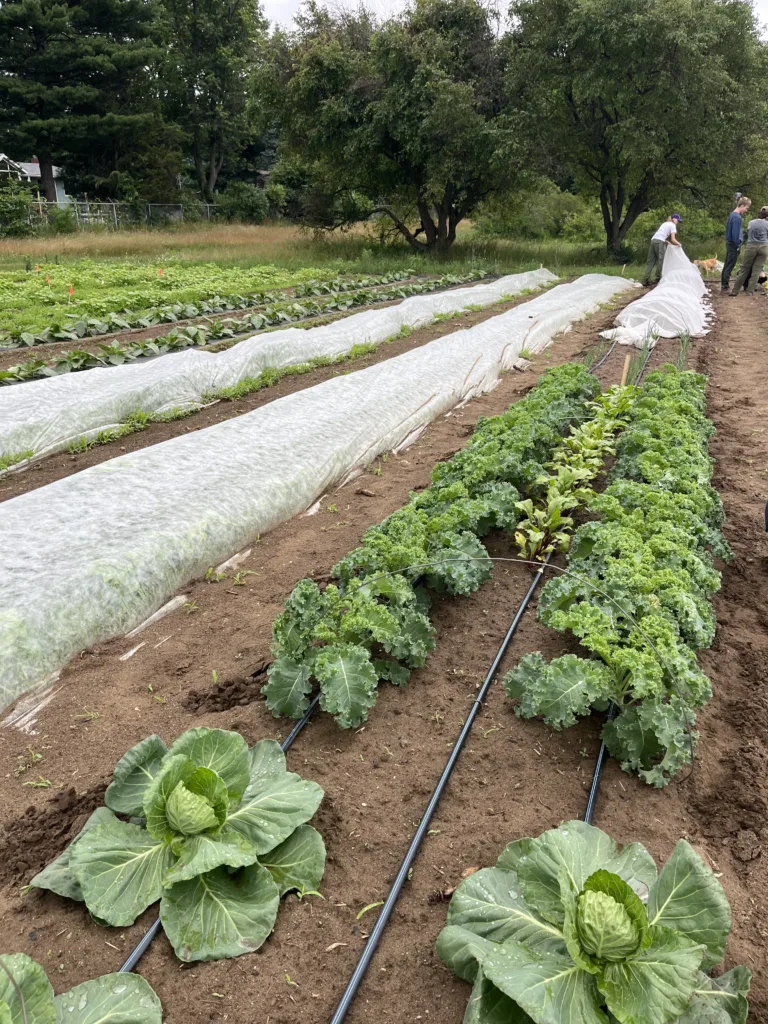Jewish Sustainability in Action: Hillel on the Farm
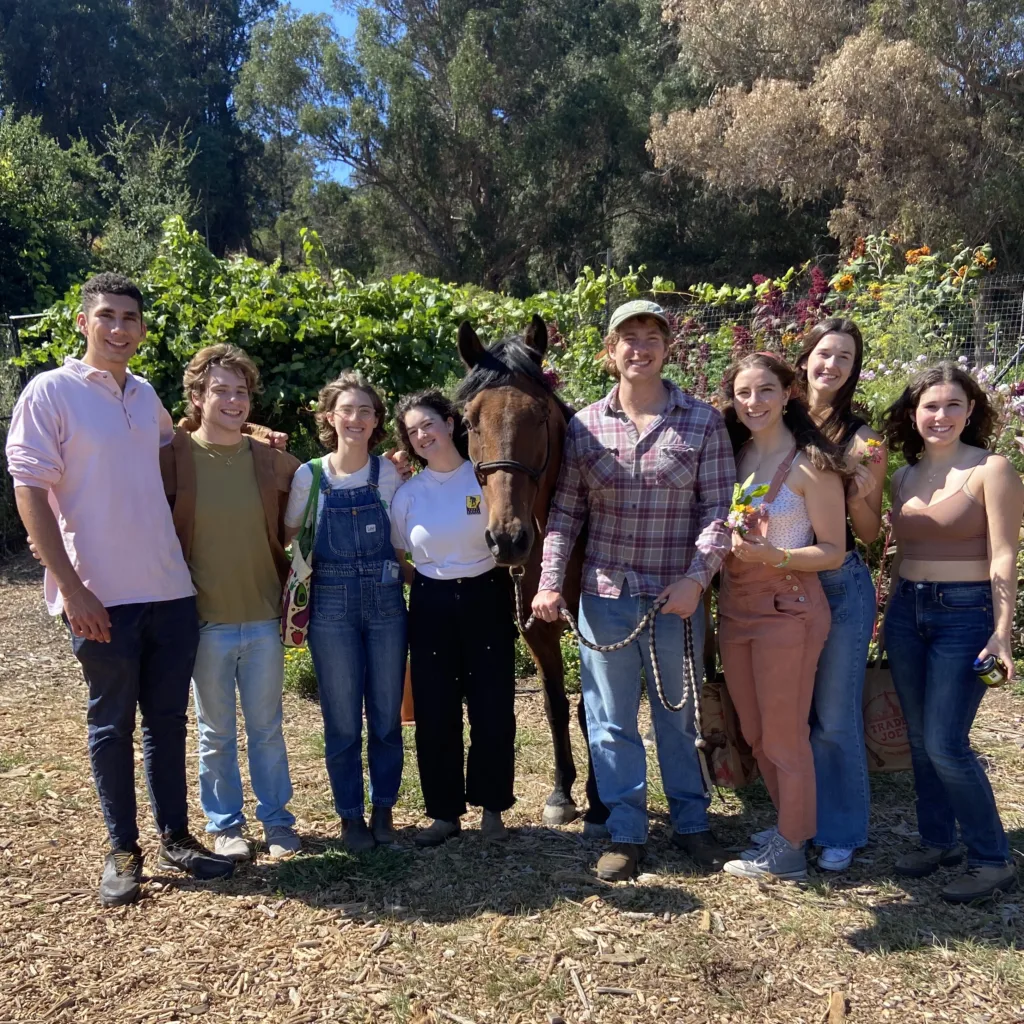
Taking care of the land we live on is more than just a Jewish tradition — it’s part of Jewish law.
Campus Hillels across North America are finding ways to tie together their Jewish connection to the land with sustainability and environmental practices. Check out these stories from three Hillels partnering with local farms to make a difference.
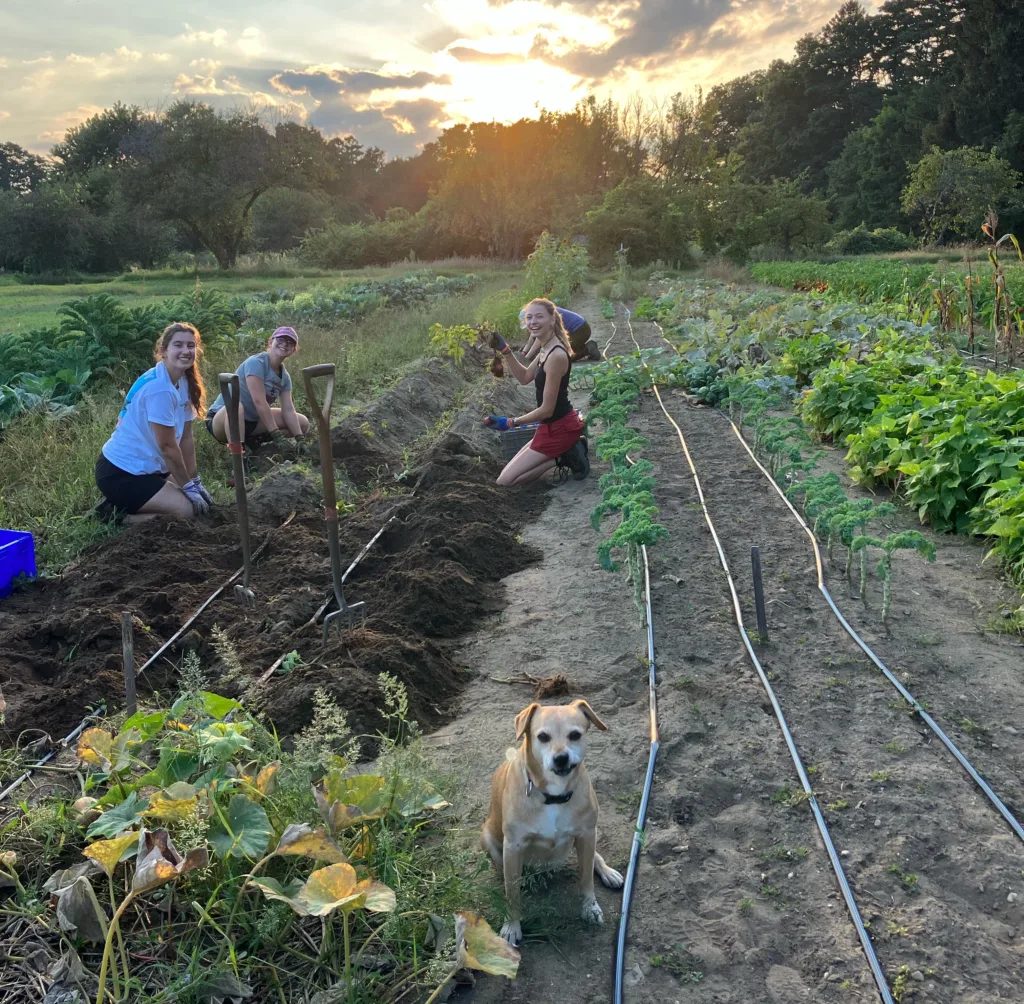
University of Vermont Hillel: Hillel Fresh and Seeds for Students
UVM’s Hillel Fresh program started as a way to combat food insecurity among students, and expanded significantly during the pandemic to ensure that students could have access to Shabbat meals even without Hillel hosting. Each student who signs up for Hillel Fresh receives a bag with all the ingredients they need for Shabbat, along with a Jewish learning text and a list explaining where all the food came from.
In the last three years, Hillel Fresh expanded to include its own farming plot on the University’s research farm. During the summers, the farm is managed by Seeds to Students interns who care for the crops while engaging in weekly Jewish learning around agriculture, land ownership, and sustainability. This year, all the produce from the summer was used during the fall semester in Hillel Fresh bags.
Sophie Warth, a fourth-year student at UVM majoring in Food and Culture, is the Director of Hillel Fresh and Seeds to Students. Under her leadership, the program has grown to include medical and graduate students in its distribution in addition to undergraduate students, making a more significant impact in combating student food insecurity. In reflecting on her experience with these two programs Sophie said, “The most meaningful parts of working with Hillel Fresh and Seeds to Students have been combining my connections to my Hillel community with the relationships I’ve built with the local farms involved in Hillel Fresh. Being on the farm, working with the land, and taking a product from seed to harvest have also been invaluable experiences”

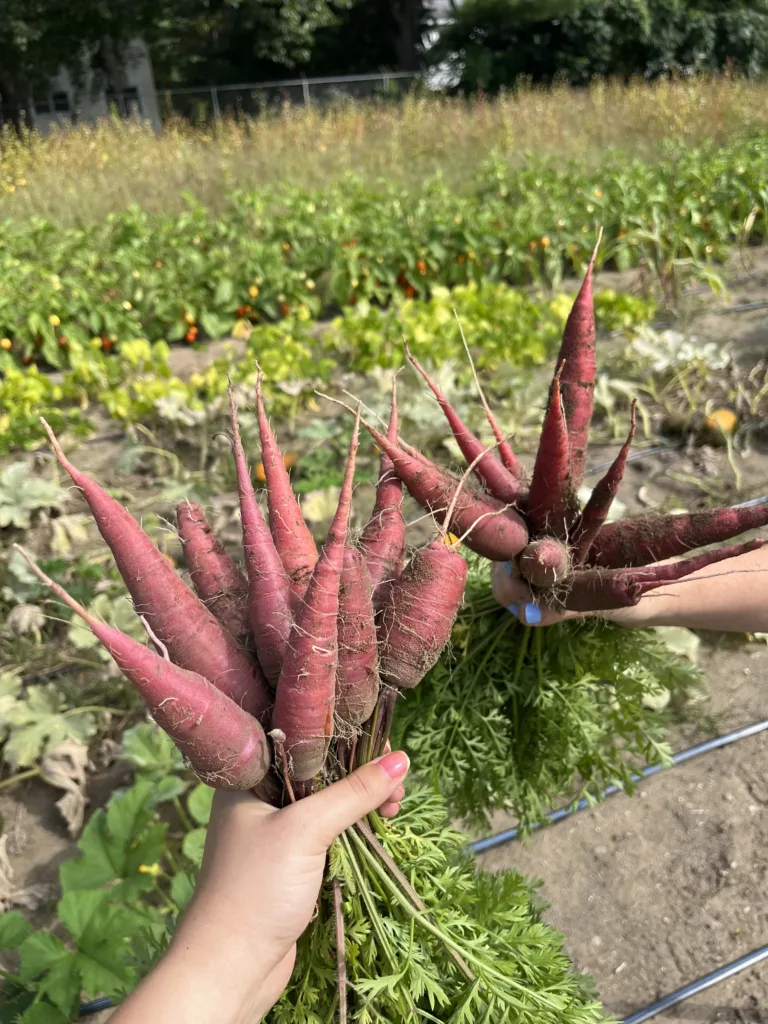
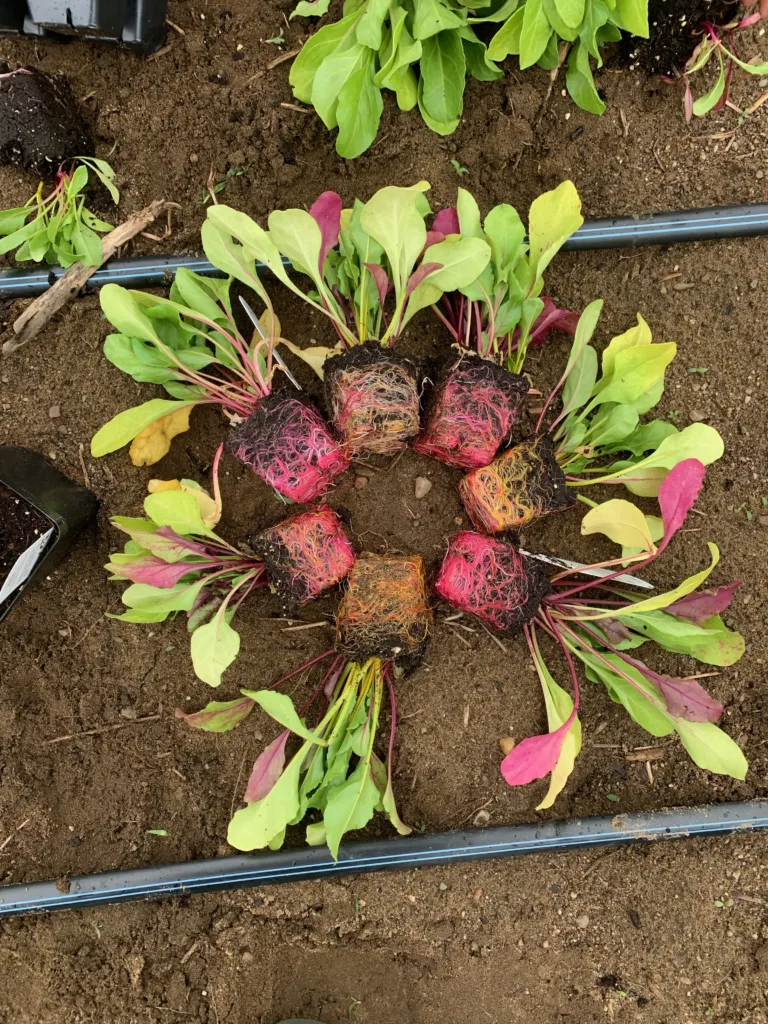
Berkeley Hillel: Jewish Responses to Climate Change
Chance Reiniesch has made expanding Jewish programs around sustainability and farming his mission at University of California, Berkeley (UC Berkeley) Hillel. Growing up on a farm, Chance spent a lot of time gardening and growing, and he’s been working to bring more programming around Jewish social justice, climate justice, and sustainability to his college community.
Berkeley’s Hillel had a number of small partnerships and programs, but Chance saw room for growth. As the Social Action Associate, Chance expanded a program with University of California Gill Tract Farm, a local university farm that teaches people about indigenous land practices and donates food back to the community. He also helped launch the L’Shomra: Jewish Responses to Climate Change fellowship, where students examine their relationship with the world and their responsibility to protect it — and learn from contemporary sources and Jewish ancestral wisdom. Ben Witeck, a third year student at UC Berkeley, said, “My Judaism has always pushed me to engage in pressing areas of social justice. Connecting ancient and modern land-based practices as integral parts of my Jewish identity has been both a meaningful and powerful experience.”
Students also have the opportunity to take bi-monthly trips to other local farms, and to participate in weekly actions with Urban Adamah, a Jewish community farm dedicated to combating food insecurity in its area.
One of Chance’s favorite parts of Berkeley Hillel’s sustainability work is the pollinator garden. Students were inspired to build out the garden, working with Hillel staff to plant different species and organize gardening shifts to help it flourish. To Chance, the garden speaks to Berkeley Hillel’s holistic commitment to environmentalism, and allows them to actively show connections between gardening and Jewish learning and ritual. Figs from the garden’s fig tree are used for the annual Tu B’Shvat seder — a sweet way to renew the community’s connection to the earth as responsible caretakers.
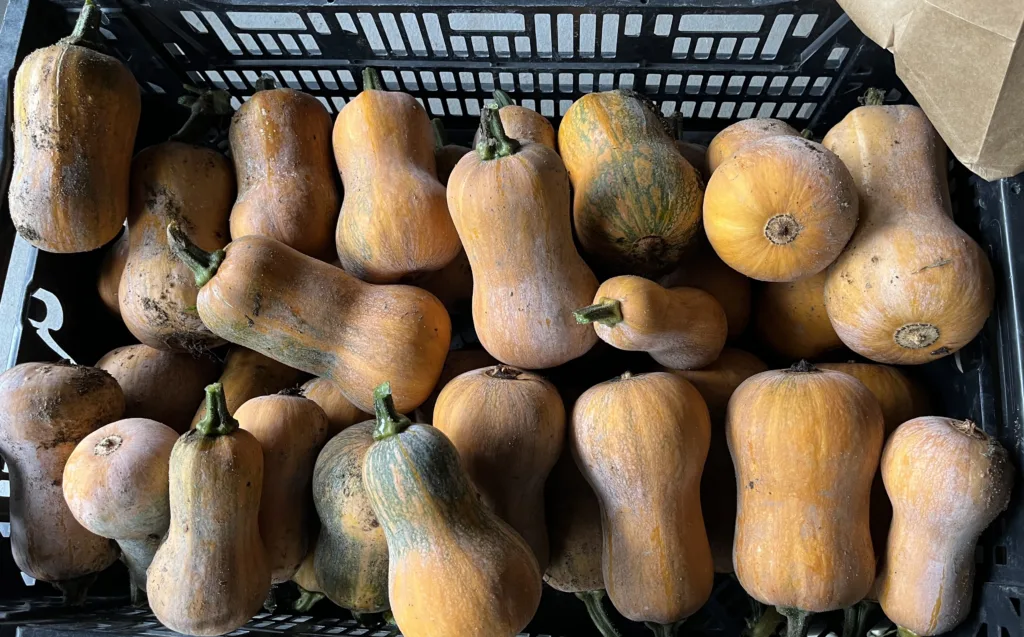
Colorado State University Hillel: RAM Kibbutz
CSU Hillel has a unique claim to fame: they’re the first student-led organization to be certified by Adamah. Starting from a farm-to-table program focusing on sustainability in sourcing and preparing Shabbat meals, CSU Hillel decided to create their own campus “kibbutz,” including a vegetable garden and a chicken coop.
Adam Fox, CSU Hillel’s Director of Jewish Student Life, took the initiative to expand the kibbutz beyond a sustainability initiative and added a component of student empowerment and wellness. Noticing that students having a bad day or struggling with the stress of campus life often came to the kibbutz to watch the chickens, he applied for a mental health and wellness grant from Hillel International to add ducks to the kibbutz family, and later received another grant to train student interns to care for them. Student leaders take on the role of “Chicken Tenders,” who are in charge of the care of new ducks Nibbler and Glenda, along with the kibbutz’s existing chickens.
Adam sees the kibbutz not just as a key part of the Hillel community, but as a way to bring in students who might not otherwise be engaged by giving them an opportunity to connect through sustainability. Since October 7, he’s seen an increased interest in the kibbutz as more students looked for ways to connect to their Jewish identity and spend time in a supportive Jewish space. RAM Kibbutz offers a place and a community for students to connect to and rely on one another — just like a real kibbutz.
